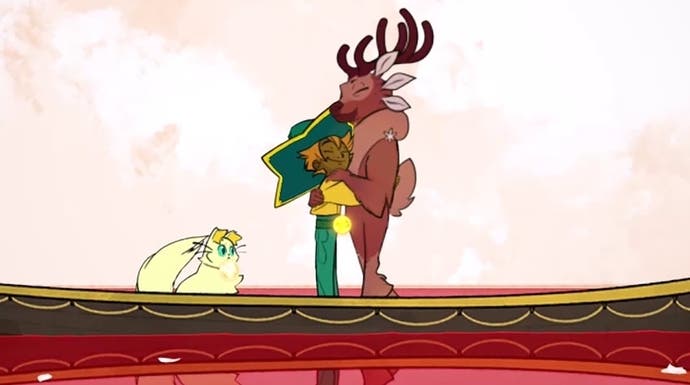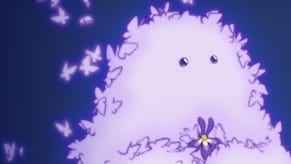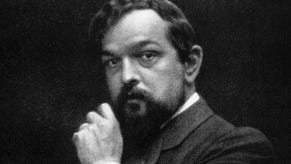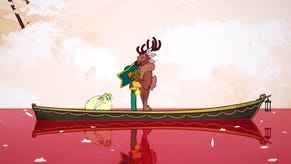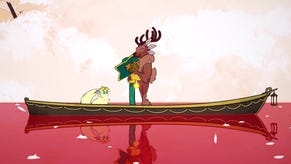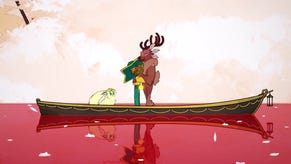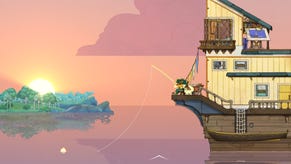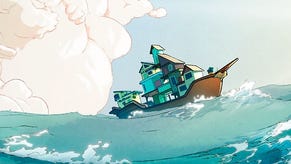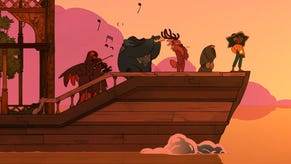Spiritfarer's response to grief is a warm embrace
Bear hygge.
Last month, one of my close family members passed away. It wasn't a surprise: he'd reached 90, his health was deteriorating, and we all knew it wouldn't be long until it happened. But no matter how prepared you are, it's always a shock - and on the evening I found out, I spent several hours on the shorefront trying to process my grief.
When we describe death, it's nearly always in negative terms, and loaded with imagery of things like tombstones, skulls and the colour black. Death is the Other we define ourselves against, and even the language we use to describe death ('passed away') distances us from the concept.
Most of the time, we just don't talk about it.
So Spiritfarer - a game filled with bright colours, a house boat and friendly huggable animals - is probably the last place you'd expect to find musings on death. And yet, when I went hands-on with it at Gamescom, I was surprised to find a sincere and comforting approach to a heavy topic.
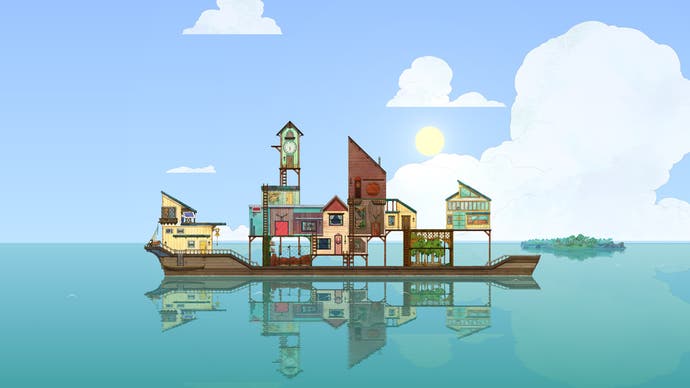
For those who need a refresh, Spiritfarer is a "cozy management sim about dying" by Thunder Lotus that puts players in the shoes of Stella, who's just inherited the role of ferrymaster to the deceased. You're charged with caring for several creatures on your houseboat by farming, cooking and fishing for them - carrying out quests and building their homes - before eventually granting their final wishes and releasing them into the afterlife. It's a setting with obvious Greek mythological influences, albeit with a more positive message of acceptance and closure. (Rather than, you know, rolling a boulder up a hill forever).
Death comes to us all eventually, so in the face of that inevitability, the idea with Spiritfarer is to foster a healthier approach to the subject - one which creative director Nicolas Guerin said is similar to Mexico's Day of the Dead celebration.
"We focus mainly on legacy and transition," Guerin explained. "You look at the legacy of all the generations before you and you are there because of all the interactions that shaped you as a human being."
To reflect this, the player learns from the spirits they ferry around: Guerin noted every single skill is taught by a spirit, so the knowledge is passed on to the younger generation. Each spirit has a unique personality with varying needs - preferring different types of weather or food, for instance, and the player can bond with the characters through specific event quests. I cheered up my toad friend by catching lightning in the rain, and even in a thunderstorm (something that typically inspires dread and fear), Spiritfarer was able to make the experience strangely euphoric through its uplifting music and joyful animations. The game's approach to death shifts the focus from sorrow over separation to positive remembrance - a celebration of personality, shared memories, and skills that live on through you.
Admittedly, Spiritfarer's core mechanics aren't exactly revolutionary: with much of the game revolving around crafting, farming and collecting items to keep your passengers happy, it's mainly about exploration and inviting more spirits onto your ever-expanding houseboat. But Spiritfarer isn't trying to provide complex gameplay - it's more interested in simple comforts. It really channels the Danish concept of "hygge": the feeling of happiness found through cosiness. I felt this most in the tiny but beautifully-decorated rooms dedicated to each spirit, but also the ability to hug pretty much any character in the game - including the co-op mode's second player-character, a cat called Daffodil.
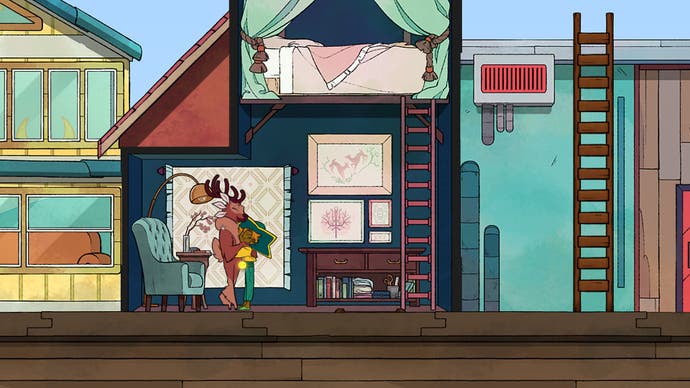
Perhaps the best evidence of Spiritfarer's power to soothe was that I played it immediately after terrifying myself with Blair Witch at Gamescom. Despite the breakneck change in pace (and the constant chatter of the Gamescom halls), it only took a few minutes for Spiritfarer to calm me down. The watery expanses and isolated islands instantly reminded me of Miyazaki classics Ponyo and Spirited Away - there's something about broad horizons that prompts humans to pause and (quite literally) reflect on the big things.
Given Spiritfarer's central theme, I was initially surprised that I didn't spot any conversations explicitly addressing the emotions surrounding death: but I think that's deliberate. The game doesn't aim to provide weighty philosophical discussions on death, it's more about mood creation and imparting that calmness on the player. If Spiritfarer were a piece of music, it would be Debussy. It's a mood piece that explores broad themes and colours instead of a highly-structured narrative.
In the process of writing this, I've been thinking about the things my family member shared with me: painting, a love of Elgar, an extensive explanation of the Fabian Society... and that's certainly a more positive way to process grief. But in the immediate aftermath of a loss, Spiritfarer knows that sometimes, there are no words - and that's ok. What you really need is a hug.
